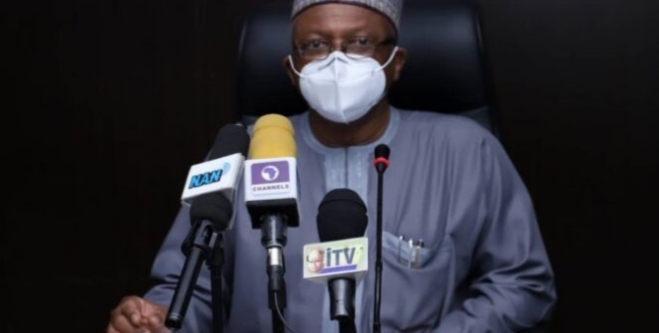Minister of Health, Osagie Ehanire has stated that country needs N352 billion to implement its strategic plan to tackle malaria in 2021.
According to the World Health Organisation 2020 report on malaria prevalence worldwide, Nigeria tops the list of countries with the highest cases of the disease.
“Twenty-nine countries accounted for 95% of malaria cases globally. Nigeria (27%), the Democratic Republic of the Congo (12%), Uganda (5%), Mozambique (4%) and Niger (3%) accounted for about 51% of all cases globally,” the report reads.
The Minister of Health, Osagie while speaking at a media briefing on Friday as part of activities to mark the World Malaria Day.
Ehanire said the country needs a total of N1.89 trillion to effectively address issues relating to malaria.
The World Malaria Day is celebrated on April 25 annually, and is focused on reviewing strategies for ending the scourge of malaria worldwide.
According to the minister, the needed funds cannot be sourced by government alone, considering the effects of the COVID-19 pandemic on the economy.
He, therefore, encouraged the private sector to collaborate with the government on improving efforts to address the spread of malaria across the country.
“The World Malaria Day commemoration provides us with the opportunity to share the progress we have made, share best practices, create awareness on the scourge of malaria,” Ehanire said.
“Particularly, this year, Nigeria and other countries battled the COVID-19 pandemic. The theme of this year’s commemoration, ‘Zero Malaria, Draw the line Against Malaria’, and the slogan ‘Stand Up, Take Action’, which is to empower communities in various countries to take ownership of preventing malaria and providing proper care and treatment to those in need, are germane.
“The implementation of the new strategic plan will cost N1.89 trillion. About N352 billion is required for the year 2021 programme implementation.
“Considering the prevailing economic circumstances, the government may not have the adequate amount. So, I use this opportunity to solicit support from corporate organisations, the private sector and also patriotic individuals.”
However, scientists in the UK have developed the world’s most effective malaria vaccine with significant efficacy against the disease as vaccine trials continue worldwide.
Researchers at the Jenner Institute of Oxford University and their partners, said findings from a phase IIb trial of R21/Matrix-M malaria vaccine, demonstrated high-level efficacy of 77 percent.
